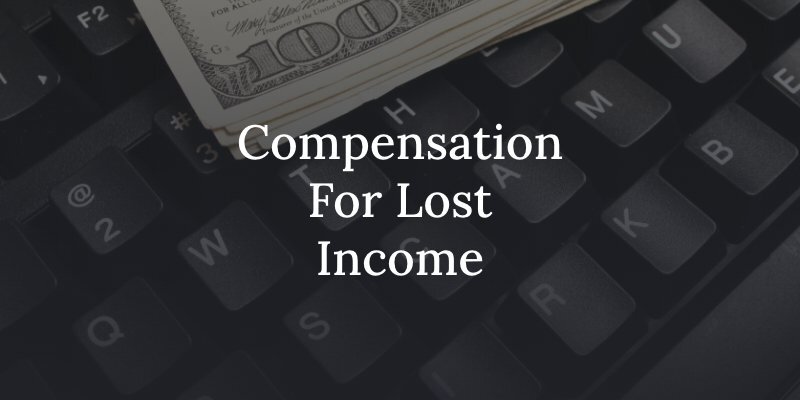An injury happens in an instant, but the injury victim may face the adverse physical, emotional, and financial impacts of the injury for months or more. Severe or catastrophic injuries may have permanent consequences, leaving the injury victim facing an uncertain future. When the injury was caused by another party’s reckless, careless, or intentionally wrongful behavior, the injury victim may demand financial accountability through a personal injury case against the at-fault party.

Often, this is a direct claim against the appropriate insurance policy. Carelessness, recklessness, or wrongdoing are all examples of negligence that leave an injury victim liable for the victim’s damages. Loss of income is one of the most common and costly damages injury victims experience in the weeks and months after an accident. However, insurance companies may refuse to compensate victims for the full amount of damage; this is where the help of a Kansas City personal injury attorney may become necessary
Economic and Non-Economic Damages in Personal Injury Claims
When a serious injury occurs, the victim requires medical treatment. This often includes initial emergency room treatment and then follow-up care. Some injuries require surgeries, procedures, rehabilitation, and long recovery periods to achieve maximum medical improvement. During medical treatments and recovery periods, an injury victim may be unable to return to work, resulting in lost earnings.
If the injury was catastrophic, they may not ever be able to return to their prior employment or may be unable to work at all. Medical expenses, out-of-pocket costs related to the injury, and lost wages are all examples of economic damages in a personal injury claim. The pain and suffering an injury victim experiences from the injury and related medical procedures are the non-economic damages. Some injuries cause additional non-economic damages like PTSD, loss of enjoyment of life, or diminished quality of life.
What Types of Income Can an Injury Victim Claim as Economic Damages?
When painful injuries, corrective medical procedures, and necessary recovery periods cause an injury victim to miss work, they can list this lost income as economic damages in their claim. Examples of lost income include the following:
- Hourly wages
- Overtime
- Salary
- Commissions
- Bonuses
- Tips
- Lost benefits, including the loss of retirement contributions, lost sick days and vacation time, and lost health insurance contributions
A personal injury attorney uses evidence such as recent paychecks, tax records, and employer statements to prove the injury victim’s loss of income and then includes it in their list of compensatory damages.
Diminished Future Earning Ability
Sometimes, income loss is only temporary, while an injury victim undergoes medical care and all doctor-recommended procedures, therapies, and recovery time. Unfortunately, some injuries are catastrophic, with permanent impacts on the injury victim’s ability to work. Examples of catastrophic injuries include loss of limb, traumatic brain injuries with impairment, and spinal cord injuries.
These permanent injuries may not allow the injury victim to return to the type of work they did before the injury, resulting in diminished future earning capacity. In the worst cases, the injury victim may be unable to return to the workforce at all. A skilled attorney calculates lost income, future income loss, and diminished future earning ability during a personal injury claim to recover compensation for these impactful damages through a settlement or court award.

